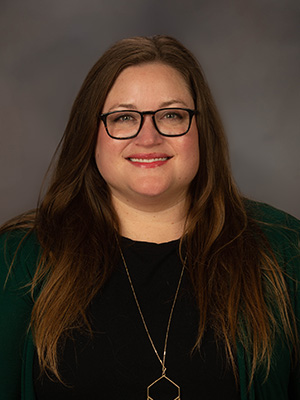Lessons with POPS

As part of the transition from discipline-based courses to a systems-scaffolded curriculum, more active learning activities and strategies have been used to reinforce learning and increase student engagement. One of the formats that has been utilized is problem-based learning through a system called Patient-Oriented Problem Solving (POPS) that the School of Medicine has adapted to meet our needs and students.
The original POPS format was developed at the University of Florida in 1974 by Parker A. Small, Jr., MD; Susan M. Johnson, PhD; and Eldon J. Ullmer, PhD. While the original format has been adapted over the years, the Office of Medical Education (OME) has further adapted the system by reformatting the structure to meet our students’ and faculty’s needs, writing new cases, and creating new pre-test/post-test questions that align with the cases.
The purpose of these revisions is to create a format that students are able to strengthen their understanding and to apply foundational science knowledge to clinical cases. Each POPS session includes some content to which students have not yet been exposed in the classroom setting but that could be learned through individual research and problem solving. In addition, students are put into groups of 4-5 students, and working together is encouraged to solve problems, answer questions, provide feedback, and to teach one another when needed.
For the creation of each POPS session, OME asks 2-3 faculty to author a POPS session based on given objectives. Once the initial draft is submitted, OME sends the draft to 3 different faculty members to review and make any necessary changes. Those 3 edited documents are then returned to the original authors for final approval and for submission of a final draft. Once the final draft is submitted, it is read through and approved by the course directors for which the POPS was written and the dean of academic affairs.
Students are initially given a week to complete a 10-question, open source pre-test. The correct answers are released once the test is closed and prior to the POPS session. Students have a week and a half to review and research one of the five cases, and groups determine which group member is responsible for each case during the POPS session. During the hour-long POPS session, three groups are in a room with a facilitator. The facilitator is either a clinician or a foundational scientist that leads the students through the questions and cases and helps deepen understanding through questioning and explanations. During the POPS session, students discuss the pre-test questions and also lead their groups through their cases and answer any pertinent questions. The facilitator is floating from group to group to answer any questions as well. This takes about 40 minutes of the hour-long session. The remainder of the time, the facilitator chooses a group at random to teach a case and lead a group discussion should any questions arise. After the POPS session, students have a 5 question, open source post-test to be completed that evening. These questions are new and could cover a nuanced aspect of the objectives or the disease.
Having completed 7 POPS sessions so far, OME has learned a lot. We have tweaked our process slightly to make it more effective for our students. We have also received great feedback from facilitators and students alike. It is a very involved process for students, but they enjoy being able to see the clinical aspects of what they are learning during their foundational science courses and to be able to make a connection with their facilitators. Facilitators find the students to be very engaged and prepared for the sessions. Students and facilitators typically leave the POPS sessions with smiles on their faces and having further discussions together on the POPS topic. We are excited to continue these POPS sessions as we begin to get into system-specific courses. If you are interested in authoring or peer reviewing a POPS session or would like more information about POPS, please contact Brittany Ricker at bricker@umc.edu.


